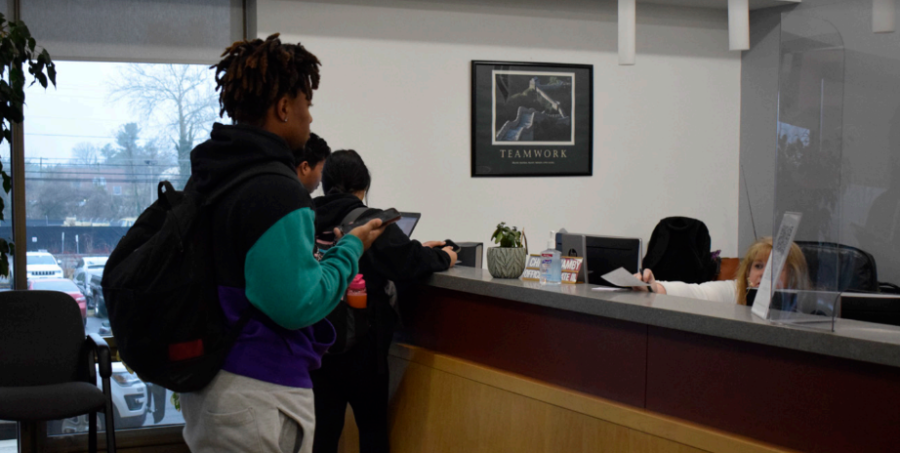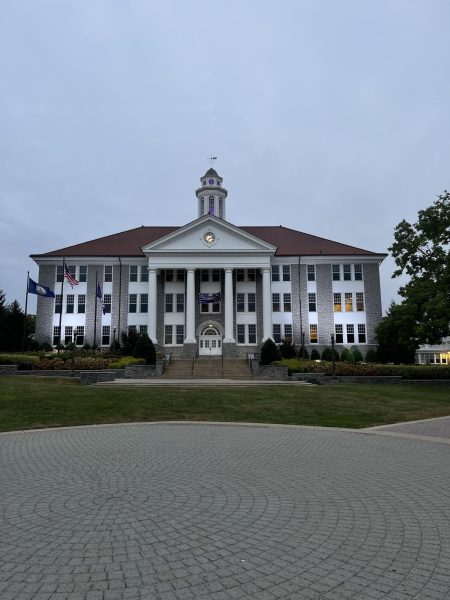Students Upset by Attendance Policies
Students arriving late to school receive a tardy slip, and possibly a detention
Third time’s a charm, but not when it comes to the attendance policy at FHS; instead, it equates to a detention warning.
Principal Kraig Kelican said, “The policy that we’re [using] right now is the same policy that we used prior to COVID.” While the policy hasn’t changed, the recent enforcement of it as the school normalizes following the pandemic has caught some students off guard. The policy, which was covered by administration during grade-level assemblies at the start of the school year, states that students will not receive punishment for their first three tardies to school. Upon the fourth, they receive one detention. This policy is progressive, with the fifth tardy punishment being a five day parking suspension and two detentions. The policy can be found in the 2022-23 student handbook.
In addition to the consequences assigned to tardies, students receiving 10 or more absences from any class will require an attendance meeting between administration and a parent/guardian. This could also lead to a failure from the class.
While stiff consequences are associated for both absences and tardies, some students believe that the attendance policy punishes tardies more severely than absences. Junior Felicity Awunganyi stated, “I think the tardy policy is not intentionally [used] to harm students, but it indirectly harms students in how they perceive coming to school.” Junior Lauren Byrd agrees, saying, “A lot of people have the mindset now that if you’re going to be late, you might as well just miss school.” Junior Brandon Frear adds, “People purposefully won’t come to school so that they won’t get a tardy which kind of defeats the whole purpose.”
As the school year has progressed, some students have taken objection to the enforcement of the policy. “I get that they are trying to teach us to not be late to school, but there has to be some exceptions at some point,” said sophomore Addie Gorg. However, exceptions to the enforcement of the policy can lead to further frustration amongst students.
Some FHS students believe that the tardy policy is not enforced equally for all students. Senior Griffin Barrett says, “I know a few students personally, who seem like they’re late almost every day and have not gotten a detention yet.” In a follow-up interview, Barrett states that after his original interview, he was made aware of certain circumstances that occurred during the first semester that impacted the implementation of the tardy policy. “[During] the first semester, it was kind of lax because the detention lady was out sick, so they didn’t have anybody to run it. So, it was kind of lax but it was lax for everyone,” said Barrett.
Some students have theories as to why certain students are treated differently. Gorg says, “I feel like kids who are more involved in the school, know the principals more or are in SCA definitely get away with being late.”
Senior Grady Panagos explains his experience with the tardy policy, saying, “Last semester I probably was late six times and I didn’t get a detention.” Panagos explains his thoughts on why this occurred by saying, “…[It’s] because I’m special… maybe [because] I’m in the SCA.” To further explain the reason behind this, in a follow-up interview, Panagos said, “Last semester I think I got three [tardies] and I had a couple excused because I was at the doctor’s office.”
An outcry for a distinction between excused tardies and unexcused tardies is also in demand. Some students feel confused and frustrated because those who have legitimate reasons for being late to school are punished in the same way as students who are truant. Senior Taylor Knighting says, “If you have a doctor’s note and still have to do detention, it’s frustrating.”
The tardy policy is often unyielding, even when there are unforeseen circumstances. English teacher Cathleen Beachboard says, “If you come late to school and you had a flat tire, you wouldn’t be tardy. The office would mark that an excused absence.” However, a situation on Feb. 1 describes a reality for some students that is contrary to this belief. On Feb. 1 Fauquier County Public Schools issued a two hour delay. While it is not required for FHS to provide a crossing guard to direct traffic before and after school, typically, there is one present. On Feb. 1, no crossing guard was present to direct traffic. This resulted in an abnormally high number of late arrivals to school. Senior Mer Kulang was one of many who were late and recalls that, “the whole lobby was filled with a bunch of kids.” Kulang also was “expecting whoever was sitting at the front desk to let us go to our classes.” Despite her expectations of leniency, she was issued a tardy and sent to class. Kulang says, “I do not think it’s fair for them to give us tardies for a crossing guard not being there.”
While many students have strong opinions about the attendance policy, the enforcement of the policy post-pandemic has led to a decrease in late arrivals to school. Kelican says, “We were writing somewhere between 70 and 90 late arrivals a day. We’re down to about 20 to 25 max, and a lot of days it’s less than that.”
Thanks for reading The Falconer. We're happy to provide you with award-winning student journalism since 1963, free from bias, conflicts of interest, and paywalls. We're able to continue with the generous support of our local community. If you're able, please consider making a donation. Any amount is incredibly helpful and allows us to pursue new and exciting opportunities.





